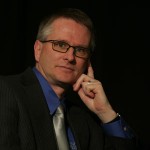Business as Mission, BAM, is a new term but the underpinning concept is nothing new. Business as Mission is not a new discovery, but a rediscovery of biblical truths and practices.
Our first God-given mandate is the creation mandate, Genesis 1-3: we are to be creative and create good things, for ourselves and others, being good stewards of all things entrusted to us–even in the physical arena. This of course includes being creative in business–to create wealth. Wealth creation is a godly talent: “Remember the Lord and your God, for it is he who gives you the ability to produce wealth” (Deuteronomy 8:18). As Christians we often focus more on wealth distribution, but there is no wealth to distribute unless it has been created.
God calls and equips some people to business. We need to affirm and encourage business people to exercise their calling with professionalism, excellence, and integrity. Martin Luther puts it this way:
A cobbler, a smith, a farmer, each has the work and the office of his trade, and they are all alike consecrated priests and bishops, and every one by means of his own work or office must benefit and serve every other, that in this way many kinds of work may be done for the bodily and spiritual welfare of the community, even as all the members of the body serve one another.
Or as stated in the Business as Mission Manifesto, from the Lausanne paper on BAM 2004:
We call upon the Church worldwide to identify, affirm, pray for, commission and release business people and entrepreneurs to exercise their gifts and calling as business people in the world – among all peoples and to the ends of the earth.
We call upon business people globally to receive this affirmation and to consider how their gifts and experience might be used to help meet the world’s most pressing spiritual and physical needs through Business as Mission.
Business is more than…
If business was only about maximizing profit, it would be acceptable to get involved in human trafficking, which is relatively low risk (few traffickers are caught and sentenced) and has a relatively high profit margin. If job creation was the only purpose of business, one could commend the Mafia for the jobs they create.
Businesses need to make a profit to survive but they should also look beyond that. Pope John Paul II wrote: “The purpose of a business firm is not simply to make a profit, but is to be found in its very existence as a community of persons who in various ways are endeavouring to satisfy their basic needs, and who form a particular group at the service of the whole of society.”
BAM and a challenge before us
A focus for many in the global BAM movement is the Arab world and Asia since there is a concentration of many needs in these regions:
- The name of Jesus is rarely heard in the Muslim, Hindu, and Buddhist worlds.
- These regions are where a large part of the world’s poorest are found.
- Unemployment and underemployment in many of these countries range from 30% – 80%.
- These regions have the fastest population growth, with hundreds of millions of young people coming into the labor market looking for jobs.
- These are also often high-risk areas for trafficking and prostitution. Unemployment makes people vulnerable.
A common denominator in the above points is jobs: there is a great need for jobs with dignity. BAM is a strategy to address these challenges and demonstrate the Kingdom of God. BAM is a growing global movement of Christians in the marketplace seeking to serve God and the common good through business.
1.8 billion jobs needed
There is a global shortfall of about 1.8 billion good formal jobs, according to Jim Clifton, CEO of Gallup. Many people live and work in the insecure, informal job sector, which is often filled with survival activities in the form of subsistence businesses. Most people hope for a formal job, but many have little or no prospect of finding one. The problem is growing, and the challenge is huge and global. What must be done?
Handouts do not give dignity – jobs do.
Aid can ease problems temporarily but cannot create 1.8 billion new jobs. We know, for example, that aid has not lifted Africa out of poverty, as the international economist Dambisa Moyo has clearly demonstrated in her book Dead Aid.
Micro-loan programs can help, but tend to build the informal economy and thus run the risk of cementing people and nations in poverty. BAM is about societal transformation, which implies building the formal economy. The backbone of developed countries is small and medium size enterprises (SMEs). SMEs also drive job creation in developing countries. For example, more than 80% of African jobs are created by SMEs, according to World Bank surveys; yet those businesses are often neglected by traditional aid agencies.
Societal transformation
There have been movements of societal transformation throughout history.[1] Key leaders like Luther, Calvin, Knox, and Zwingli catalyzed the Protestant reformation. Approximately 200 years ago, William Wilberforce and others spearheaded the movement fighting for the abolition of slavery and the slave trade. The civil rights movement in the USA brought about significant change and Martin Luther King was an audacious leader.
Societal transformation implies good and lasting change. It is not about achieving perfection; there will always be room for improvement. Looking at the movements of societal transformation, one can observe some common themes and denominators. Such movements:
- started as a small minority;
- shared a vision;
- embraced common values;
- connected with one another;
- built critical mass; and
- had commendable tenacity.
BAM is another movement for social transformation. Today there is a global BAM movement; it did not exist 20 years ago. There were expressions of BAM back then and even long before that. However, now there is an unprecedented global cohesion and connectedness. BAM shares the common themes outlined above.
Small minority and common values
The BAM movement is still small (a minority), but vision and values are increasingly shared across the globe. (The Lausanne paper on BAM 2004 deals with values and essential BAM building blocks, especially in chapter four)
Shared vision
The first global think tank on BAM (2003 – 2004) and the Lausanne paper on BAM (2004) helped catalyze a common global understanding of the concept.
- It sought to address how businesses can:
- serve people;
- align with God’s purposes;
- be good stewards of the planet; and
- make a profit.
This is often referred to as the quadruple bottom-line. We are aiming at a positive impact economically, socially, environmentally and spiritually, leading to holistic transformation of people and societies – to the greater glory of God. We are especially concerned about the world’s poorest and the least evangelized peoples.
Connected with one another
The 2nd global think tank process (2011 – 2013) has increased the connections, creating global connectivity of key players in the BAM eco-system, with people from every continent.
The global BAM think tank had approximately 30 national, regional and international working groups collaborating. Leaders from these groups and other BAM leaders at large, about 80 in total, met at the Leaders’ Forum in April in Thailand.
The largest global gathering ever of social and intellectual capital in the BAM space followed this. More than 550 people from over 40 nations came to the BAM Congress later in the month. The Congress collaborated with a BAM Trade Fair, which followed immediately after and had over 200 participants.
These BAM think tanks (2003 – 2004 and 2011 – 2013), processes and meetings, and the BAM Congress, have been instrumental in building a global BAM movement, establishing a shared vision, developing common values, and facilitating a global network of BAM practitioners and other key leaders in the overall BAM eco-system.
Critical mass
Without critical mass of sizeable BAM businesses, SMEs and beyond, we cannot see transformation at a macro level – on cities, cultures and nations. Critical mass, in the BAM movement, is yet to come, although promising indicators are emerging in some countries and areas.
Tenacity
BAM is an intergenerational issue, like other movements of societal transformation. BAM is not instant coffee: take a few bits of BAM thinking, stir into a business and transformation is the result. On the contrary, societal transformation takes time, and we want to set a stage and serve our generation in such a way that it will be a blessing for many generations to come.
BAM and the olive tree
We can learn from the olive tree. Many of us think in terms of two kinds of olives: green and black. However, there are 1,000 or more varieties. In the BAM movement, we are not just two categories: business people on the one hand, and church and mission people on the other. Rather, we are part of a greater eco-system – of investors, bookkeepers, prayer partners, entrepreneurs, academics, human trafficking experts, theologians, marketing and sales people, and many others.
It takes 20 to 25 years before an olive tree bears fruit – olives that can be eaten. However, once it starts bearing fruit, it can produce olives for 2,000 years or more. Olive trees are intergenerational blessings.
The modern BAM movement is still young; we are in some ways still within the first 25 years of the life of an olive tree. We do see some fruit, but are eagerly awaiting more. However, we need to nurture and care for the BAM olive tree in these early days of the movement. We want to build a movement that can bring good and lasting transformation, and we know it takes time. However, we need tenacity – we must hold onto our vision and maintain our values, as we build BAM communities.
We embrace the promise that God will bless us so we can be a blessing – in and through business – in our generation and for many generations to come. That is BAM and the olive tree.
To learn more about the Global BAM Think Tank, see www.BAMThinkTank.org.
For BAM material in English and 15 other languages, see www.MatsTunehag.com.
Endnotes
- See article by Patrick Dixon entitled ‘Global Trends, People Movements and Their Impact on Missions’ in the June 2013 issue of Lausanne Global Analysis.

